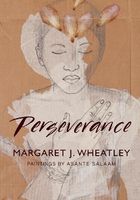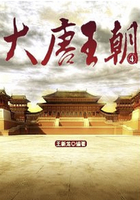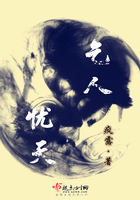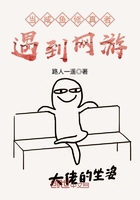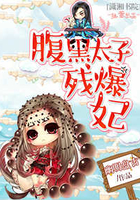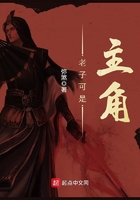Biju had started his second year in America at Pinocchio's Italian Restaurant, stirring vats of spluttering Bolognese, as over a speaker an opera singer sang of love and murder, revenge and heartbreak.
"He smells," said the owner's wife. "I think I'm allergic to his hair oil." She had hoped for men from the poorer parts of Europe—Bulgarians perhaps, or Czechoslovakians. At least they might have something in common with them like religion and skin color, grandfathers who ate cured sausages and looked like them, too, but they weren't coming in numbers great enough or they weren't coming desperate enough, she wasn't sure… .
The owner bought soap and toothpaste, toothbrush, shampoo plus conditioner, Q-tips, nail clippers, and most important of all, deodorant, and told Biju he'd picked up some things he might need.
They stood there embarrassed by the intimacy of the products that lay between them.
He tried another tactic: "What do they think of the pope in India?"
By showing his respect for Biju's mind he would raise Biju's self-respect, for the boy was clearly lacking in that department.
"You've tried," his wife said, comforting him a few days later when they couldn't detect any difference in Biju. "You even bought the soap," she said.
Biju approached Tom & Tomoko's—"No jobs."
McSweeney's Pub—"Not hiring."
Freddy's Wok—"Can you ride a bicycle?"
Yes, he could.
Szechuan wings and French fries, just $3.00. Fried rice $1.35 and $1.00 for pan-fried dumplings fat and tight as babies—slice them open and flood your plate with a run of luscious oil. In this country poor people eat like kings! General Tso's chicken, emperor's pork, and Biju on a bicycle with the delivery bag on his handlebars, a tremulous figure between heaving buses, regurgitating taxis—what growls, what sounds of flatulence came from this traffic. Biju pounded at the pedals, heckled by taxi drivers direct from Punjab—a man is not a caged thing, a man is wild wild and he must drive as such, in a bucking yodeling taxi. They harassed Biju with such blows from their horns as could split the world into whey and solids: paaaaaawww!
One evening, Biju was sent to deliver hot-and-sour soups and egg foo yong to three Indian girls, students, new additions to the neighborhood in an apartment just opened under reviewed city laws to raised rents. Banners reading "Antigentrification Day" had been hauled up over the street by the longtime residents for a festival earlier in the afternoon when they had played music, grilled hot dogs in the street, and sold all their gritty junk. One day the Indian girls hoped to be gentry, but right now, despite being unwelcome in the neighborhood, they were in the student stage of vehemently siding with the poor people who wished them gone.
The girl who answered the buzzer smiled, shiny teeth, shiny eyes through shiny glasses. She took the bag and went to collect the money. It was suffused with Indian femininity in there, abundant amounts of sweet newly washed hair, gold strung Kolhapuri slippers lying about. Heavyweight accounting books sat on the table along with a chunky Ganesh brought all the way from home despite its weight, for interior decoration plus luck in money and exams.
"Well," one of them continued with the conversation Biju had interrupted, discussing a fourth Indian girl not present, "why doesn't she just go for an Indian boy then, who'll understand all that temper tantrum stuff?"
"She won't look at an Indian boy, she doesn't want a nice Indian boy who's grown up chatting with his aunties in the kitchen."
"What does she want then?"
"She wants the Marlboro man with a Ph.D."
They had a self-righteousness common to many Indian women of the English-speaking upper-educated, went out to mimosa brunches, ate their Dadi's roti with adept fingers, donned a sari or smacked on elastic shorts for aerobics, could say "Namaste, Kusum Auntie, aayiye, baethiye, khayiye!" as easily as "Shit!" They took to short hair quickly, were eager for Western-style romance, and happy for a traditional ceremony with lots of jewelry: green set (meaning emerald), red set (meaning ruby), white set (meaning diamond). They considered themselves uniquely positioned to lecture everyone on a variety of topics: accounting professors on accounting, Vermonters on the fall foliage, Indians on America, Americans on India, Indians on India, Americans on America. They were poised; they were impressive; in the United States, where luckily it was still assumed that Indian women were downtrodden, they were lauded as extraordinary—which had the unfortunate result of making them even more of what they already were.
Fortune cookies, they checked, chili sauce, soy sauce, duck sauce, chopsticks, napkins, plastic spoons knives forks.
"Dhanyawad. Shukria. Thank you. Extra tip. You should buy topi-muffler-gloves to be ready for the winter."
The shiny-eyed girl said it many ways so that the meaning might be conveyed from every angle—that he might comprehend their friendliness completely in this meeting between Indians abroad of different classes and languages, rich and poor, north and south, top caste bottom caste.
Standing at that threshold, Biju felt a mixture of emotions: hunger, respect, loathing. He mounted the bicycle he had rested against the railings and was about to go on, but something made him stop and draw back. It was a ground-floor apartment with black security bars, and he put two fingers to his lips and whistled into the window at the girls dunking their spoons into the plastic containers where the brown liquid and foggy bits of egg looked horrible against the plastic, twe tweeeeee twhoo, and before he saw their response, he pedaled as fast as he could into the scowling howling traffic down Broadway, and as he pedaled, he sang loudly, "O, yeh ladki zara si deewani lagti hai… ."
Old songs, best songs.
But then, in a week, five people called up Freddy's Wok to complain that the food was cold. It had turned to winter.
The shadows drew in close, the night chomped more than its share of hours. Biju smelled the first of the snow and found it had the same pricking, difficult smell that existed inside the freezer; he felt the Thermocol scrunch of it underfoot. On the Hudson, the ice cracked loudly into pieces, and within the contours of this gray, broken river it seemed as if the city's inhabitants were being provided with a glimpse of something far and forlorn that they might use to consider their own loneliness.
Biju put a padding of newspapers down his shirt—leftover copies from kind Mr. Iype the newsagent—and sometimes he took the scallion pancakes and inserted them below the paper, inspired by the memory of an uncle who used to go out to the fields in winter with his lunchtime parathas down his vest. But even this did not seem to help, and once, on his bicycle, he began to weep from the cold, and the weeping unpicked a deeper vein of grief—such a terrible groan issued from between the whimpers that he was shocked his sadness was so profound.
When he returned home to the basement of a building at the bottom of Harlem, he fell straight into sleep.
The building belonged to an invisible management company that listed its address as One and a Quarter Street and owned tenements all over the neighborhood, the superintendent supplementing his income by illegally renting out basement quarters by the week, by the month, and even by the day, to fellow illegals. He spoke about as much English as Biju did, so between Spanish, Hindi, and wild mime, Jacinto's gold tooth flashing in the late evening sun, they had settled the terms of rental. Biju joined a shifting population of men camping out near the fuse box, behind the boiler, in the cubby holes, and in odd-shaped corners that once were pantries, maids' rooms, laundry rooms, and storage rooms at the bottom of what had been a single-family home, the entrance still adorned with a scrap of colored mosaic in the shape of a star. The men shared a yellow toilet; the sink was a tin laundry trough. There was one fuse box for the whole building, and if anyone turned on too many appliances or lights, PHUT, the entire electricity went, and the residents screamed to nobody, since there was nobody, of course, to hear them.
Biju had been nervous there from his very first day. "Howdy," a man on the steps of his new abode had said, holding out his hand and nodding, "my name's Joey, and I just had me some WHEES-KAY!" Power and hiss. This was the local homeless man at the edge of his hunting and gathering territory, which he sometimes marked by peeing a bright arc right across the road. He wintered here on a subway grate in a giant plastic-bag igloo that sagged, then blew taut with stale air each time a train passed. Biju had taken the sticky hand offered, the man had held tight, and Biju had broken free and run, a cackle of laughter following him.
"The food is cold," the customers complained. "Soup arrived cold! Again! The rice is cold each and every time."
"I'm also cold," Biju said losing his temper.
"Pedal faster," said the owner.
"I cannot."
It was a little after 1 A.M. when he left Freddy's Wok for the last time, the street lamps were haloes of light filled with starry scraps of frozen vapor, and he trudged between snow mountains adorned with empty take-out containers and solidified dog pee in surprised yellow. The streets were empty but for the homeless man who stood looking at an invisible watch on his wrist while talking into a dead pay phone. "Five! Four! Three! Two! One—TAKEOFF!!" he shouted, and then he hung up the phone and ran holding onto his hat as if it might get blown off by the rocket he had just launched into space.
Biju turned in mechanically at the sixth somber house with its tombstone facade, past the metal cans against which he could hear the unmistakable sound of rat claws, and went down the flight of steps to the basement.
"I am very tired," he said out loud.
A man near him was frying in bed, turning this way, that way. Someone else was grinding his teeth.
By the time he had found employment again, at a bakery on Broadway and La Salle, he had used up all the money in the savings envelope in his shoe.
It was spring, the ice was melting, the freed piss was flowing. All over, in city cafés and bistros, they took advantage of this delicate nutty sliver between the winter, cold as hell, and summer, hot as hell, and dined al fresco on the narrow pavement under the cherry blossoms. Women in baby-doll dresses, ribbons, and bows that didn't coincide with their personalities indulged themselves with the first fiddleheads of the season, and the fragrance of expensive cooking mingled with the eructation of taxis and the lascivious subway breath that went up the skirts of the spring-clad girls making them wonder if this was how Marilyn Monroe felt—somehow not, somehow not… .
The mayor found a rat in Gracie Mansion.
And Biju, at the Queen of Tarts bakery, met Saeed Saeed, who would become the man he admired most in the United States of America.
"I am from Zanzibar, not Tanzania," he said, introducing himself.
Biju knew neither one nor the other. "Where is that?"
"Don't you know?? Zanzibar full of Indians, man! My grandmother—she is Indian!"
In Stone Town they ate samosas and chapatis, jalebis, pilau rice… . Saeed Saeed could sing like Amitabh Bachhan and Hema Malini. He sang, "Mera joota hai japani.…" and "Bombay se aaya mera dost—Oi!" He could gesture with his arms out and wiggle his hips, as could Kavafya from Kazakhstan and Omar from Malaysia, and together they assailed Biju with thrilling dance numbers. Biju felt so proud of his country's movies he almost fainted.




